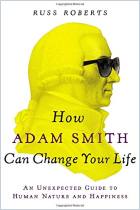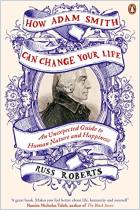Join getAbstract to access the summary!

Join getAbstract to access the summary!
Nicholas Phillipson
Adam Smith
An Enlightened Life
Yale UP, 2010
What's inside?
Adam Smith’s The Wealth of Nations set capitalism’s course. This “intellectual biography” reveals the man behind the book.
Recommendation
No other book is as closely identified in the public mind with capitalism and free markets as Adam Smith’s classic, Inquiry into the Nature and Causes of the Wealth of Nations. Published in 1776, The Wealth of Nations – with its imagery of an “invisible hand” at work moving markets – confirmed this quiet bachelor professor’s reputation as the pre-eminent thinker of his time. The modern era sees Smith as the patron saint of fiscal conservatism, but his worldview went far beyond the foundations of economics. He believed human beings could advance in all aspects of society to attain lives of freedom, choice and respect. And he saw the potential embodiment of his dreams in a new country called the United States of America. Historian Nicholas Phillipson’s “intellectual biography” of Smith delves into his prolific work and meagerly documented life, starting with his childhood as a widow’s son in a small Scottish town. The result is a dense, scholarly book that presumes a reader’s grounding in 18th-century philosophical history. Though it’s hardly a breezy read, getAbstract recommends Phillipson’s work, which notably clarifies Smith’s role as a catalyst for political and economic change in a turbulent era.
Summary
About the Author
Nicholas Phillipson, an expert on the Scottish Enlightenment, is a Fellow in History at Edinburgh University.


















Comment on this summary